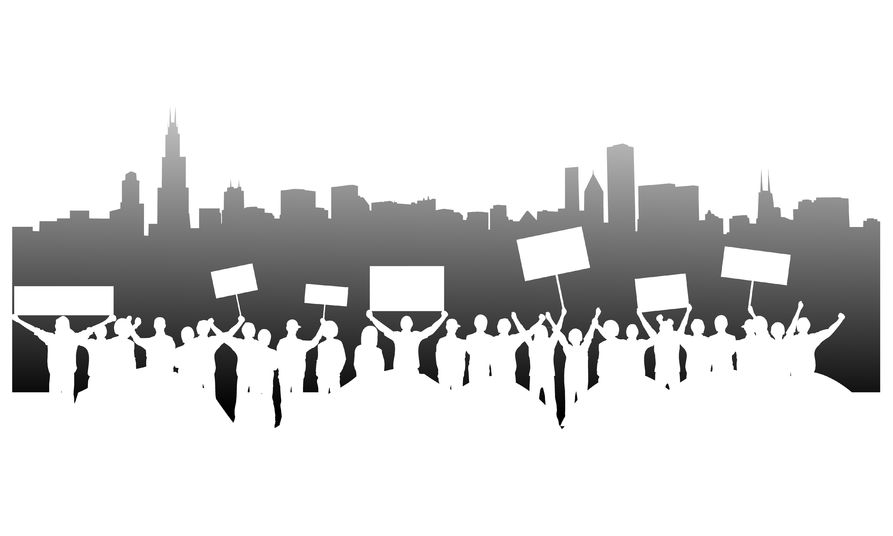
by Dan | Feb 27, 2019 | Uncategorized
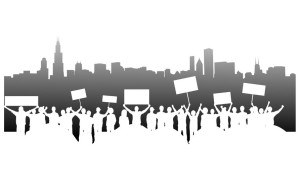 When you think of the First Amendment, freedom of speech, freedom of religion and freedom of the press typically come to mind. By comparison, the freedoms to petition and peacefully assemble are frequently forgotten by American citizens asked about their First Amendment rights in surveys and informal polls. Why is that?
When you think of the First Amendment, freedom of speech, freedom of religion and freedom of the press typically come to mind. By comparison, the freedoms to petition and peacefully assemble are frequently forgotten by American citizens asked about their First Amendment rights in surveys and informal polls. Why is that?
There is a long, complicated history behind our Constitutional right to peacefully assemble, but it’s not as well known as some of the other freedoms guaranteed by the First Amendment because this is something that may not directly affect us on a daily basis. While many people assume this simply refers to the unrestricted right to protest, the reality is actually much more complex than you might think.
As the Library of Congress points out, the government cannot prohibit its citizens from congregating in public spaces, whether that entails participation in protests and marches or attending public meetings. Over time, this right has bolstered public marches, rallies, and student protests.
Nowadays, the freedom to peacefully protest is closely intertwined with our rights to freedom of speech and even freedom of religion in some cases. For instance, citizens are able to collectively amplify their voices and potentially spark socio-political change in ways that simply wouldn’t be possible if we were forced to articulate our opinions and ideas in isolation from other people who may be receptive to them.
Of course, it’s worth noting that the right to peaceful assembly is not absolute, nor is it easy to interpret under the law. There have been several legal challenges related to the question of what constitutes a “peaceful” protest, and which types of assembly may be considered dangerous, threatening, or chaotic. This is why many protest organizers need to acquire permits before a protest may take place in public. That can help the local/state/federal government to adequately prepare for a larger-than-usual public presence and properly secure the area with law enforcement, in cases of conflict between protestors and counter-protestors.
Additionally, the government may limit when and where a protest or rally may be held for the purpose of minimizing disruptions to public life. For instance, a loud, chaotic protest that clogs the streets during rush hour in a large urban area may not meet the criteria for a “peaceful” form of assembly.
Although you may not think about your right to peaceful assembly as much as you’re aware of the freedoms to speak freely and practice any religion you choose, it’s nevertheless an important right that all Americans ought to remember when it comes to the First Amendment.

by Dan | Feb 13, 2019 | Uncategorized
 What’s the definition of religion? While your first response may be something like “a belief in a god,” the answer is much more complicated when it comes to freedom of religion protections and churches’ tax-exemption statuses in the U.S. In other words, the actual definition of religion (a system of faith and worship) is so broad that almost anything could technically be considered a “religion,” rather than limiting it to the major faith systems of Christianity, Islam, Judaism, Buddhism, etc.
What’s the definition of religion? While your first response may be something like “a belief in a god,” the answer is much more complicated when it comes to freedom of religion protections and churches’ tax-exemption statuses in the U.S. In other words, the actual definition of religion (a system of faith and worship) is so broad that almost anything could technically be considered a “religion,” rather than limiting it to the major faith systems of Christianity, Islam, Judaism, Buddhism, etc.
Regardless of your own religious or nonreligious beliefs, have you ever wondered why churches receive tax-exemption status in the U.S. and what organizations qualify for it, per the IRS guidelines? Here’s a brief overview of the current interplay between religion and taxation in the United States:
Tax-Exemption for Religious Institutions
IRS regulations pertaining to churches and religious organizations fall under the umbrella of 501(c)(3). This means these groups are exempt from having to pay local, state and federal taxes, which could add $83.5 billion to government revenues in the U.S. if churches were required to pay taxes on donations and other forms of income.
Churches also do not have to file Form 990, which other charities are required to fill out to remain transparent about their donations and financial statements.
Pushing the Boundaries?
What is the bright line between a regular tax-exempt church and something that operates similarly to a church but doesn’t seem to be a traditional religious institution? For example, the First Church of Cannabis – which considers marijuana to be a sacrament that heals suffering and brings people closer together – was granted tax-exemption status by the IRS in 2015. Meanwhile the ever-controversial organization of Scientology is considered tax-exempt, though it has lost its exemption in the past and might lose it again in the future.
Then there’s the story of a Florida “church” called The Life Center that turned out to be a rowdy nightclub (which lost its local tax-exempt status but maintained its state tax-exemption for some time). With these major examples of non-traditional notions of what it means to be a religious organization, how does the IRS decide whether or not to grant tax-exemption without demonstrating bias in favor or against certain so-called religious groups?
Legitimacy Issues and the First Amendment
As Forbes pointed out, the IRS typically examines the following factors to decide if a church should be granted tax-exemption status:
“Distinct legal existence; Recognized creed and form of worship; Definite and distinct ecclesiastical government; Formal code of doctrine and discipline; Distinct religious history; Membership not associated with any other church or denomination; Organization of ordained ministers; Ordained ministers selected after completing prescribed study; Literature of its own; Established places of worship; Regular congregations; Regular religious services; Sunday schools for religious instruction of the young; and Schools for preparing its members.”
The problem here is that the Constitution’s freedom of religion guarantees in the First Amendment make it difficult for the government to classify some religious groups as legitimate while denying other groups’ legitimacy. Moving forward, what should the IRS do? Should they adhere to the First Amendment’s freedom of religion guarantees by approving tax exemptions for unusual organizations that claim to be religions? Or should they revoke tax-exemption status for all churches in the U.S. to improve fairness among all religious organizations?

by Dan | Jan 23, 2019 | Uncategorized
 Colin Kaepernick may have sparked the debate over professional athletes’ access to freedom of speech and expression protections, but controversies about athletes and First Amendment rights involve so much more than kneeling during the national anthem.
Colin Kaepernick may have sparked the debate over professional athletes’ access to freedom of speech and expression protections, but controversies about athletes and First Amendment rights involve so much more than kneeling during the national anthem.
Whether you enjoy playing sports or watching sports, here’s a brief overview of the state of First Amendment rights for fans and players in the American sporting industry:
Major League Player Protests
As ESPN points out, there is no universal policy among major sports leagues when it comes to players’ conduct during the national anthem. While the new NFL policy that players and coaches must stand during the national anthem mirrors NBA and WNBA policies, the MLB and NCAA have no official policies on the matter. The NHL’s Player’s Association even went as far as explicitly confirming support for players who would like to engage in “peaceful protest” during the national anthem. Meanwhile, Major League Soccer reportedly “encourages” players to stand during the national anthem, but it does not require them to do so.
If the First Amendment primarily protects citizens against any wrongful infringement on their speech/expression by the government, should it also protect professional players that work for nongovernmental sports organizations? The debate will likely continue for many years to come.
Paid Sponsorships for College Athletic Departments
College sports are already under fire for not paying their players (beyond covering tuition/fees in most cases), while their events make millions of dollars thanks to these hard-working student-athletes. Another issue confronting college athletic departments these days is paid sponsorships, which involves corporations sponsoring college teams by offering funds, gear and other incentives in exchange for advertising opportunities.
Since public university athletic directors are technically government employees, this raises the issue of potential First Amendment violations when a director accepts some corporate sponsorships while rejecting others. Should athletic departments be able to freely deny certain corporate sponsorships and accept others, or does this represent a Constitutional violation? Experts are still divided, so this will also remain a hotly contested issue in the world of college sports for the indefinite future.
Fan Heckling = Protected Speech?
A relatively newer phenomenon related to the First Amendment and sporting events is fan heckling. In 2018, New York Giants fans were ousted and arrested for heckling, which led them to sue, claiming their First Amendment rights were violated.
In the international arena, fan heckling has typically resulted in monetary penalties for teams, such as FIFA fining Mexico in the 2018 World Cup after Mexico’s fans repeatedly hurled homophobic slurs at the goalie during their match against Germany. But when it comes to American sports – where legal jurisdiction is also more clear-cut than simply letting FIFA handle matters – should fans be penalized for heckling and poor conduct, or is this merely disrespectful behavior that should nevertheless be protected by the First Amendment?
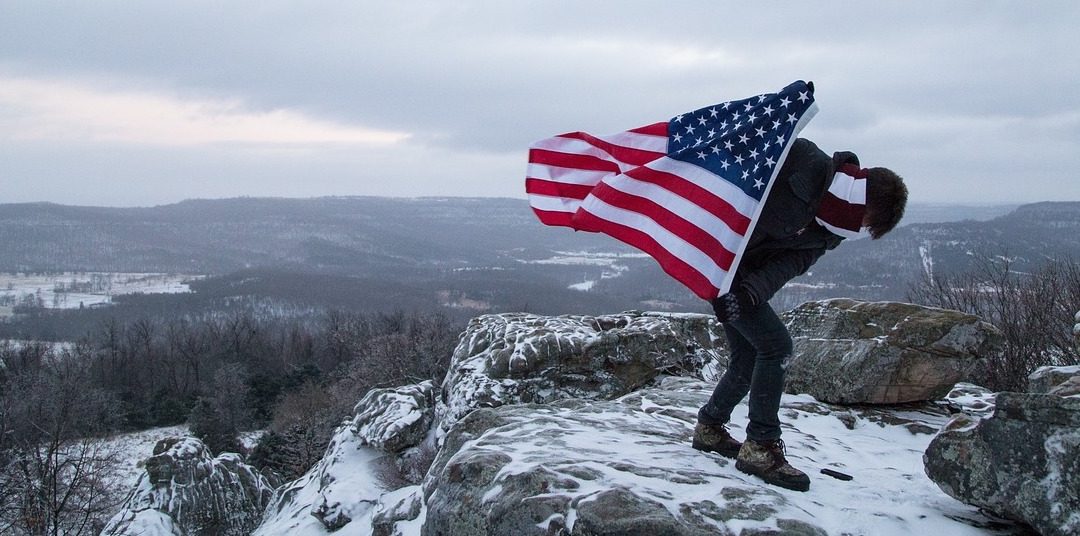
by Dan | Jan 10, 2019 | Newsletter
Citizens & Delegates,
The coming year brings great promise for First Amendment Voice. FAV has applied for 501c3 status, beginning the transition from being a project to becoming a separate organization. We look forward to bringing our Philadelphia programming from the National Symposium to Los Angeles this spring, in addition to having community engagements in Atlanta, Columbus, Georgia, Dallas/Fort Worth, Texas, and other locations. We hosted a coffee talk last week in San Clemente, California, along with the San Clemente Times to promote press literacy and support local media.
2019 promises to bring more awareness to important first amendment freedoms like practicing religion, self-expression, peaceful assembly to petition the government for grievance, and much more. We hope that if you haven’t made a new year’s resolution that you consider supporting FAV efforts by engaging in your community, supporting FAV programs through volunteering or contributing online or in person, or the many other ways you can make a difference in civic awareness and engagement. We specifically are seeking delegates to represent their states at the annual symposium in September. If you would like to be considered, please reach out today.
We have new advisors joining the movement this year and will make separate announcements in the coming weeks. If you know of anyone who has the expertise to contribute to growing the FAV movement, please reach out and let us know. We also appreciate the active engagement of some blog readers, twitter and Facebook followers, and others who provide constructive feedback and input to civic dialogue. We would like to specifically highlight BottomlessCoffee007 on our blog and twitter feed. If you haven’t seen the comments, you can find them here. Active participation in civic dialogue helps contribute to a robust, vibrant community. If you haven’t contributed yet, we hope you consider it this year. Please comment on our blogs, like/retweet or comment on twitter, like or share on Facebook, and like/comment on LinkedIn. We welcome and benefit from your input. With gratitude for the past three years and a promising future.
#FindYourVoice
The FAV Team
In the Media
Outrage Nation: Can America overcome its addiction to anger? Read more
Mark Your Calendars
January 12th in Coronado, CA Kern Beare leads a Difficult Conversations workshop. Click here for more details.
February 5th in Atlanta, GA Dr. Paul Murray and Steve Miska lead FAV Clergy Training on religious freedom
February 7-9 in Columbus, GA Steve Miska leads FAV coffee talks at various organizations
March TBD in Dallas/Fort Worth, TX Steve Miska leads FAV coffee talks at various organizations
April TBD in Los Angeles, CA the Pacific Council on International Policy hosts their annual Global LA Summit featuring FAV National Symposium programming
September TBD in Philadelphia FAV hosts the 4th Annual National Symposium
[/et_pb_text][/et_pb_column][/et_pb_row][/et_pb_section]
Citizens & Delegates,
The coming year brings great promise for First Amendment Voice. FAV has applied for 501c3 status, beginning the transition from being a project to becoming a separate organization. We look forward to bringing our Philadelphia programming from the National Symposium to Los Angeles this spring, in addition to having community engagements in Atlanta, Columbus, Georgia, Dallas/Fort Worth, Texas, and other locations. We hosted a coffee talk last week in San Clemente, California, along with the San Clemente Times to promote press literacy and support local media.
2019 promises to bring more awareness to important first amendment freedoms like practicing religion, self-expression, peaceful assembly to petition the government for grievance, and much more. We hope that if you haven’t made a new year’s resolution that you consider supporting FAV efforts by engaging in your community, supporting FAV programs through volunteering or contributing online or in person, or the many other ways you can make a difference in civic awareness and engagement. We specifically are seeking delegates to represent their states at the annual symposium in September. If you would like to be considered, please reach out today.
We have new advisors joining the movement this year and will make separate announcements in the coming weeks. If you know of anyone who has the expertise to contribute to growing the FAV movement, please reach out and let us know. We also appreciate the active engagement of some blog readers, twitter and Facebook followers, and others who provide constructive feedback and input to civic dialogue. We would like to specifically highlight BottomlessCoffee007 on our blog and twitter feed. If you haven’t seen the comments, you can find them here. Active participation in civic dialogue helps contribute to a robust, vibrant community. If you haven’t contributed yet, we hope you consider it this year. Please comment on our blogs, like/retweet or comment on twitter, like or share on Facebook, and like/comment on LinkedIn. We welcome and benefit from your input. With gratitude for the past three years and a promising future.
#FindYourVoice
The FAV Team
In the Media
Outrage Nation: Can America overcome its addiction to anger? Read more
Mark Your Calendars
January 12th in Coronado, CA Kern Beare leads a Difficult Conversations workshop. Click here for more details.
February 5th in Atlanta, GA Dr. Paul Murray and Steve Miska lead FAV Clergy Training on religious freedom
February 7-9 in Columbus, GA Steve Miska leads FAV coffee talks at various organizations
March TBD in Dallas/Fort Worth, TX Steve Miska leads FAV coffee talks at various organizations
April TBD in Los Angeles, CA the Pacific Council on International Policy hosts their annual Global LA Summit featuring FAV National Symposium programming
September TBD in Philadelphia FAV hosts the 4th Annual National Symposium
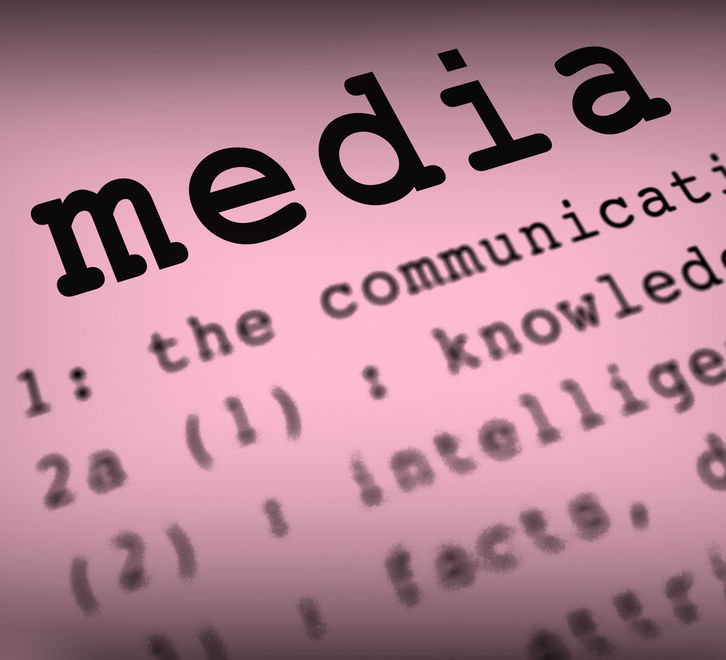
by Dan | Dec 26, 2018 | Uncategorized
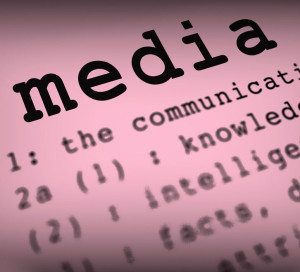 TIME‘s 2018 “person of the year” is more than just one single individual. In fact, there are several people of the year for 2018; TIME has called this group “The Guardians” to signify the importance of journalists in their never-ending pursuits to uphold democratic ideals of public trust and governmental transparency. “The Guardians” include:
TIME‘s 2018 “person of the year” is more than just one single individual. In fact, there are several people of the year for 2018; TIME has called this group “The Guardians” to signify the importance of journalists in their never-ending pursuits to uphold democratic ideals of public trust and governmental transparency. “The Guardians” include:
- The Washington Post reporter Jamal Khashoggi, who was violently killed in his own country’s embassy in Turkey in October
- Journalists working for the Capital in Annapolis, Maryland, where 5 of their colleagues were shot and killed in their own newsroom back in June
- Maria Ressa, who founded the Rappler online news site in the Philippines and covered President Rodrigo Duterte’s extrajudicial killings in the war against drugs (she’s currently awaiting sentencing that could imprison her for up to 10 years)
- Reuters reporters Kyaw Soe Oo and Wa Lone, who were sentenced to 7 years in prison for covering the deaths of 10 Rohingya Muslims in Myanmar
As the TIME article aptly noted, these “Guardians” are just some of the many journalists who faced harassment and violence in the line of reporting duty in 2018. Their contributions, their persistence, their sacrifices will not be forgotten, though powerful, authoritarian rulers and anti-free press laws may temporarily prevail in many countries, including our very own “Land of the Free,” the United States of America.
TIME chose “The Guardians” as their persons of the year because this decision sends a clear message to both fascist dictatorships and press-hating leaders of the free world alike: the public needs journalists. Without the dedicated reports of journalists willing to risk their lives to expose political corruption and tyrannical, anti-democratic leadership practices, how would the public ever know whether its elected leaders are truly doing their jobs and serving the will of the voters, first and foremost?
In addition to increasing levels of physical violence against journalists, public trust in the press has been plummeting. This could be due to a variety of factors, though the rapid and wide circulation of “fake news” rhetoric is arguably a major cause of public mistrust in news organizations. Psychological research has shown that the average human tends to engage in something called “confirmation bias,” which involves the acceptance of any information that conforms with our beliefs and the rejection of information that contradicts our beliefs (regardless of the actual validity of that information).
Journalists are absolutely essential for clarifying public perceptions about ongoing current events and political leaders. While there is no such thing as 100% pure objectivity, the phenomenon of “media bias” is more fiction than fact, despite what politicians who disagree with journalists might say about it.
TIME could not have picked a more important “person(s) of the year” for 2018. We, as members of American society and human beings in general, need to do more to protect those who hold power to account. We can start by refusing to believe or share fake news, demanding justice for journalists facing harassment and violence, and finally: by supporting news organizations in their relentless quest to equip the public with the knowledge and tools we need to remain a free and democratic society for many decades to come.

 When you think of the First Amendment, freedom of speech, freedom of religion and freedom of the press typically come to mind. By comparison, the freedoms to petition and peacefully assemble are frequently forgotten by American citizens asked about their First Amendment rights in surveys and informal polls. Why is that?
When you think of the First Amendment, freedom of speech, freedom of religion and freedom of the press typically come to mind. By comparison, the freedoms to petition and peacefully assemble are frequently forgotten by American citizens asked about their First Amendment rights in surveys and informal polls. Why is that?

 What’s the definition of religion? While your first response may be something like “a belief in a god,” the answer is much more complicated when it comes to freedom of religion protections and churches’ tax-exemption statuses in the U.S. In other words, the actual definition of religion (a system of faith and worship) is so broad that almost anything could technically be considered a “religion,” rather than limiting it to the major faith systems of Christianity, Islam, Judaism, Buddhism, etc.
What’s the definition of religion? While your first response may be something like “a belief in a god,” the answer is much more complicated when it comes to freedom of religion protections and churches’ tax-exemption statuses in the U.S. In other words, the actual definition of religion (a system of faith and worship) is so broad that almost anything could technically be considered a “religion,” rather than limiting it to the major faith systems of Christianity, Islam, Judaism, Buddhism, etc.
 Colin Kaepernick may have sparked the debate over professional athletes’ access to freedom of speech and expression protections, but controversies about athletes and First Amendment rights involve so much more than kneeling during the national anthem.
Colin Kaepernick may have sparked the debate over professional athletes’ access to freedom of speech and expression protections, but controversies about athletes and First Amendment rights involve so much more than kneeling during the national anthem.

 TIME‘s 2018 “person of the year” is more than just one single individual. In fact, there are several people of the year for 2018; TIME has called this group “
TIME‘s 2018 “person of the year” is more than just one single individual. In fact, there are several people of the year for 2018; TIME has called this group “



